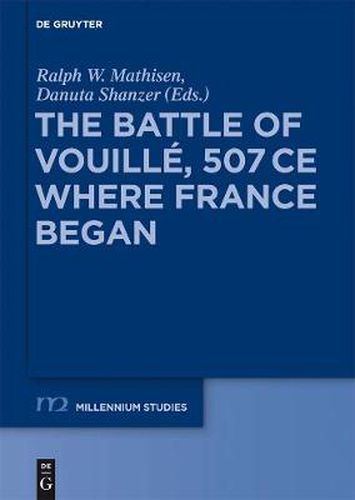Readings Newsletter
Become a Readings Member to make your shopping experience even easier.
Sign in or sign up for free!
You’re not far away from qualifying for FREE standard shipping within Australia
You’ve qualified for FREE standard shipping within Australia
The cart is loading…






This volume highlights the heretofore largely neglected Battle of Vouille in 507 CE, when the Frankish King Clovis defeated Alaric II, the King of the Visigoths. Clovis’ victory proved a crucial step in the expulsion of the Visigoths from Francia into Spain, thereby leaving Gaul largely to the Franks. It was arguably in the wake of Vouille that Gaul became Francia, and that France began. The editors have united an international team of experts on Late Antiquity and the Merovingian Kingdoms to reexamine the battle from multiple as well as interdisciplinary perspectives. The contributions address questions of military strategy, geographical location, archaeological footprint, political background, religious propaganda, consequences (both in Francia and in Italy), and significance. There is a strong focus on the close reading of primary source-material, both textual and material, secular and theological.
$9.00 standard shipping within Australia
FREE standard shipping within Australia for orders over $100.00
Express & International shipping calculated at checkout
This volume highlights the heretofore largely neglected Battle of Vouille in 507 CE, when the Frankish King Clovis defeated Alaric II, the King of the Visigoths. Clovis’ victory proved a crucial step in the expulsion of the Visigoths from Francia into Spain, thereby leaving Gaul largely to the Franks. It was arguably in the wake of Vouille that Gaul became Francia, and that France began. The editors have united an international team of experts on Late Antiquity and the Merovingian Kingdoms to reexamine the battle from multiple as well as interdisciplinary perspectives. The contributions address questions of military strategy, geographical location, archaeological footprint, political background, religious propaganda, consequences (both in Francia and in Italy), and significance. There is a strong focus on the close reading of primary source-material, both textual and material, secular and theological.